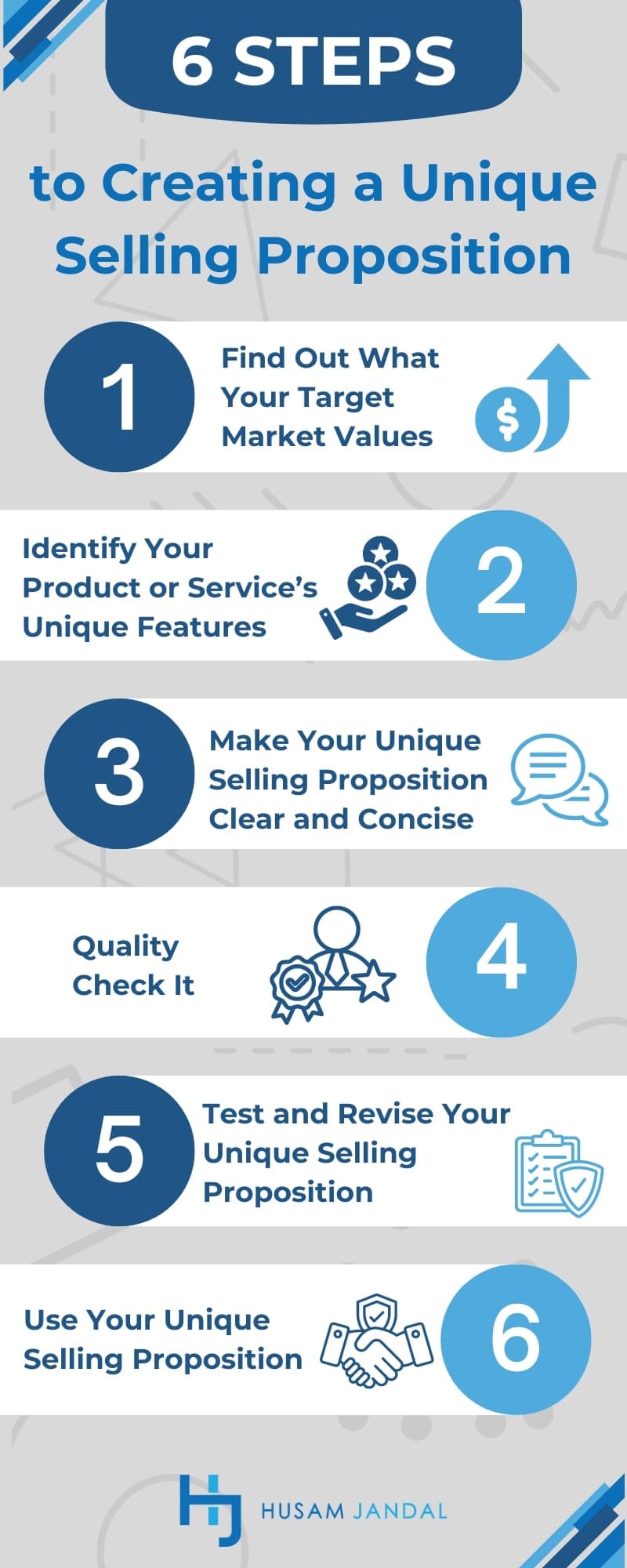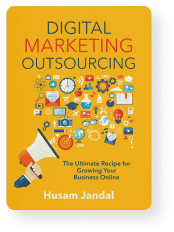 A strong and unique selling proposition differentiates your brand from the competition and helps solidify your messaging in the minds of consumers. But, it can sometimes be tricky to identify which one works best or to craft one from scratch. On this page, I’ll walk you through unique selling propositions, how they work, some examples, and how to create your own, so you can start amplifying your digital marketing with one right away.
A strong and unique selling proposition differentiates your brand from the competition and helps solidify your messaging in the minds of consumers. But, it can sometimes be tricky to identify which one works best or to craft one from scratch. On this page, I’ll walk you through unique selling propositions, how they work, some examples, and how to create your own, so you can start amplifying your digital marketing with one right away.
What is a Unique Selling Proposition (USP)?
Often shortened to “USP,” a unique selling proposition answers the question: “What’s the biggest thing that differentiates us from our competitors and that our customers care about?”
Unique Selling Proposition Examples
USPs usually center on one of the four Ps of marketing as follows:

- Product (unique characteristics or traits)
-
- Ex. Death Wish Coffee: “World’s Strongest Coffee.”
- Price (structure, value)
- Ex. Walmart: “Save Money.”
- Place (placement strategy, distribution, location)
- Ex. Visa: “Everywhere you want to be.”
- Promotion (advertising, public relations, promotional strategy)
- Ex. Robinhood: “Investing for everyone.”
What a Unique Selling Proposition is NOT
You may already be thinking, “Aha! I can model mine around one of those.” That may be so, but a good USP isn’t easily duplicated by other brands because it covers what makes a brand distinct.
For example, if you Google “World’s strongest coffee” right now, you’re almost guaranteed to see Death Wish in the top results. Even if you own a coffee company and your coffee is strong, you’d have difficulty convincing consumers that yours is the strongest. If you own a tea company, you might have a shot at becoming known as the “world’s strongest tea” if that represents your brand. At present, no known brands are using that as their USP.
A few more things a USP is not:
- The company slogan. It can be the slogan or tagline, but this isn’t always so.
- The headline on your website. It can be listed there too, but it should be something your brand embodies, not just catchy copy.
- A marketing offer, like free shipping or 25 percent off.
Why You Need a Unique Selling Proposition in Your Marketing Strategy
As a reader, you probably had an emotional response to the USPs listed earlier. Maybe when you saw “World’s Strongest Coffee,” you smiled a little and thought, “Bring it!” Or, perhaps you thought, “That stuff would kill me.” Either way, the USP worked. The intended audience saw the USP and understood the product was for them.
On the marketing side, a USP can also become the centerpiece of everything you create. For example, Death Wish doesn’t simply use “World’s Strongest Coffee” in its tagline. Instead, the phrase appears three times in different ways on the company’s homepage. The concept is carried through in different text too, such as “coffee that slaps” and “double the strength of an average cup.”
Having a USP in place gives the marketing team clear direction, yet gives them plenty of direction to create cohesive messaging.
The same could be said about Walmart’s use of “save money.” However, in addition to evoking emotion, building ties with the intended audience, and serving as the basis for cohesive marketing, it helps lead the company’s product and pricing decisions. While the company dabbles in high-end goods from time to time, it wouldn’t run on a platform of exclusivity or luxury. Those things don’t jive with the USP.
6 Steps to Creating a Unique Selling Proposition

Creating a strong USP is easier than you might think. Follow the steps outlined below and you’ll set yourself apart from the pack in no time.
1. Find Out What Your Target Market Values
If you’re marketing an established brand, you can use surveys to find out what matters most to your current customers and what areas they believe distinguish your offerings. You can also conduct market research to get a better pulse on consumer sentiment.
2. Identify Your Product or Service’s Unique Features
Spend some time getting to know the competition and find out how your offerings differ from theirs. It may be helpful to identify which USPs are working for them too, but resist the urge to copy. You’re going for unique!
3. Make Your Unique Selling Proposition Clear and Concise
Don’t try to combine everything that makes your brand unique into one USP, or it won’t be easy for anyone to follow or understand. The USP should be one main point, short, and absent of ambiguity.
4. Quality Check It
Use the list below as a quality checklist for a more impactful USP.
- Positive: Focus on the benefit the customer is gaining and avoid negative language. For example, it’s better to say “Simpler workflows” than “Workflows without the headache.”
- Powerful: Use power words like “discover,” “create,” “save,” and “protect” to strengthen your USP.
- Active voice: Your USP will sound more actionable and will likely be shorter if you use active versus passive voice. For example, “An investment platform used by everyone” (passive) is not as impactful as “Investing for everyone” (active).
- Memorable: Keep it short and sweet so people remember it and associate it with your brand.
- Qualifier-free: Avoid phrases that weaken your message, such as “usually,” “compared to,” and “almost.”
- Authentic: Your USP needs to come from your brand’s heart and be truthful, perhaps even verifiable with statistics. Consider how Death Wish Coffee doesn’t just say it’s the “World’s Strongest Coffee.” It backs this up in other coffee with statements such as “double the strength of an average cup.”
5. Test and Revise Your Unique Selling Proposition
Test your USP before going all in. You can do this with different ad campaigns, emails, or other initiatives. You may need to adjust your USP as time goes by if the wording is dated or consumer behavior shifts, so keep experimenting with it even when you have a winner.
6. Use Your Unique Selling Proposition
Your USP should become the guiding post for everything your marketing team does. It’s part of your branding and ethos. Make sure it gets shared with your team and the sentiment can be felt in everything you produce.
Get Help Leveling Up Your Digital Marketing
Developing an impactful USP is one of the first steps to creating a digital marketing strategy that gives your business an edge. If you’re struggling with yours or want help growing your business, contact me for a complimentary consultation.




































































